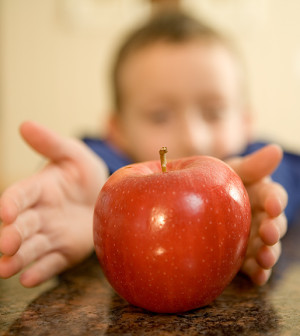- 7 Best Breads for Maintaining Stable Blood Sugar
- Gelatin vs. Collagen: Which is Best for Skin, Nails, and Joints?
- The Long-Term Effects of Daily Turmeric Supplements on Liver Health
- Could Your Grocery Store Meat Be Causing Recurring UTIs?
- Are You Making This Expensive Thermostat Error This Winter?
- Recognizing the Signs of Hypothyroidism
- 10 Strategies to Overcome Insomnia
- Could Artificial Sweeteners Be Aging the Brain Faster?
- Techniques for Soothing Your Nervous System
- Does the Water in Your House Smell Funny? Here’s Why
1 in 5 High School Seniors Binge Drinks: Study


MONDAY, Sept. 16It’s common for American high school seniors to binge on alcohol, and some have as many as 15 or more drinks at at time, a new study shows.
Binge drinking is defined as five or more drinks for men and four or more drinks for women, while having 10 or more drinks in a row is defined as extreme binge drinking, according to the study published Sept. 16 in JAMA Pediatrics.
Study background information describes short-term risks of binge drinking such as alcohol poisoning, impaired driving and injury, while long-term risks include liver damage, alcoholism and harm to the developing brains of teens.
For the study, researchers analyzed data from a more than 16,000 high school seniors: About half were female, 64.5 percent were white, 11 percent were black, 13 were percent Hispanic, and 11.5 percent were from other racial/ethnic groups.
A drink was defined as 12 ounces of beer, 4 ounces of wine, a 12-ounce wine cooler, a mixed drink, or shot glass of liquor.
About 20 percent of the high school seniors reported binge drinking (five or more drinks) in the past two weeks, 10.5 percent said they’d had 10 or more drinks, and nearly 6 percent had 15 or more drinks, according to a journal news release.
Males were more likely than females to binge drink, as were whites compared to blacks. Students with college-educated parents were at greater risk of binge drinking, but had lower odds of extreme binge drinking.
Binge drinking among American teens has continued to decline since record levels in the late 1970s and early 1980s, but extreme binge drinking among teens has not declined since 2005, noted study authors Megan Patrick, of the University of Michigan, and colleagues.
“The documented rates of extreme binge drinking, and the fact that they have not changed across recent historical time, support the need for additional research to develop effective prevention and intervention strategies to reduce high-risk alcohol behaviors of youth,” they concluded.
Experts agreed that more interventions are needed.
“While binge drinking is a serious public health problem among high school seniors, extreme binge drinking poses an even greater threat to their physical as well as mental well-being,” said Dr. Robert Glatter, an emergency physician at Lenox Hill Hospital in New York City. “The noted lack of decline in observed rates of extreme binge drinking in the past decade underscores the need for family, as well as community-based, interventions to address this dangerous trend.”
“These disturbing results suggest the critical importance of assessing multiple levels of binge drinking,” said Dr. Victor Fornari, director of the division of child/adolescent psychiatry at North Shore-LIJ Health System in New Hyde Park, N.Y. “Effective screening will include a better understanding of predictors of who is at greatest risk for this dangerous behavior.”
More information
The U.S. National Institute on Alcohol Abuse and Alcoholism offers advice on how parents can prevent children from drinking.
Source: HealthDay
Copyright © 2026 HealthDay. All rights reserved.










